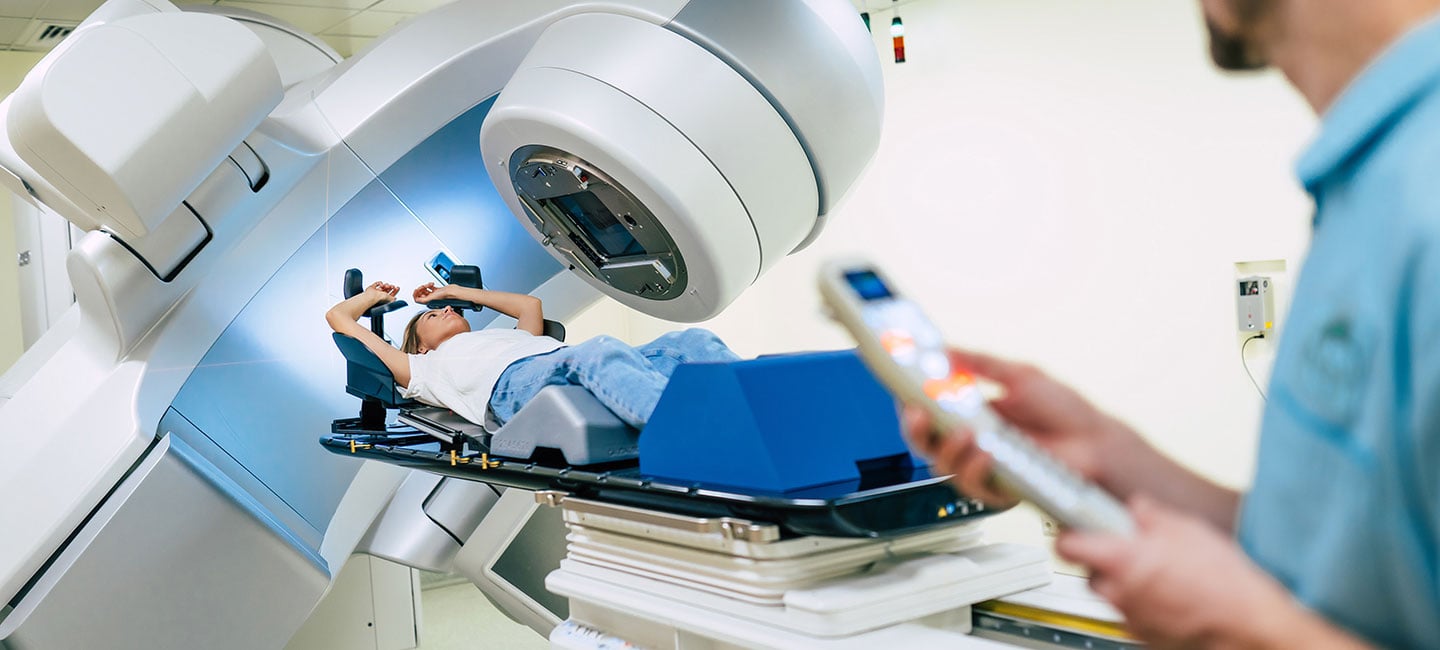Accelerated Radiation as Effective as Standard Therapy for Certain Breast Cancer Patients
Nearly half of women who are diagnosed with breast cancer will receive mastectomies, and a third of that group will require radiation therapy to the chest wall and lymph nodes to prevent a recurrence. Conventional radiation therapy involves five treatments a week for five weeks. Hypofractionated radiation therapy offers a shorter treatment option. This accelerated treatment involves higher doses of radiation over a shorter period — five treatments a week for approximately three weeks.
The short course therapy has not been recommended for women who received breast reconstruction with tissue expanders or implants following mastectomy, but new study results presented at the American Society for Radiation Oncology Annual Meeting could change that. The FABREC study is the first to compare the shorter and longer courses of post-mastectomy radiation for patients who had their breasts reconstructed immediately following mastectomy.
The trial included 400 breast cancer patients from 16 U.S. health centers. Each participant was randomly assigned to receive either conventional radiation (five treatments per week for five weeks) or hypofractionated radiation (five treatments a week for approximately three weeks). Patients completed surveys about their wellbeing and quality of life before treatment began and at six, 12 and 18 months after therapy.
Results showed accelerated and standard courses of treatment were both equally effective at preventing cancer recurrence. Side effects were also similar in both groups, however some younger patients reported improved quality of life with hypofractionated radiation therapy.

“Twenty-five radiation treatments over five weeks can be difficult for patients, especially those who live far away from their treatment facility. They must spend time away from their families and spend money on lodging. This study provides evidence that short-course radiation may be a viable option for women who have undergone mastectomy and reconstructive surgery,” said Dr. Matthew Mills of Moffitt Cancer Center’s Radiation Oncology Department.
Significant differences were seen in treatment breaks, with 7.7% of patients in the conventional radiation group needing to stop treatment, compared to 2.7% of patients receiving hypofractionated radiation.
Patients who needed unpaid time off work also reported taking 50 fewer hours of unpaid leave in the accelerated radiation arm.
“FABREC is a game changer,” said Dr. Lori Pierce from the University of Michigan, the study discussant in the ASTRO press briefing. “We have not offered hypofractionated radiation to women who have had mastectomies and implant-based reconstruction. So this accelerated treatment can help thousands of women.”



